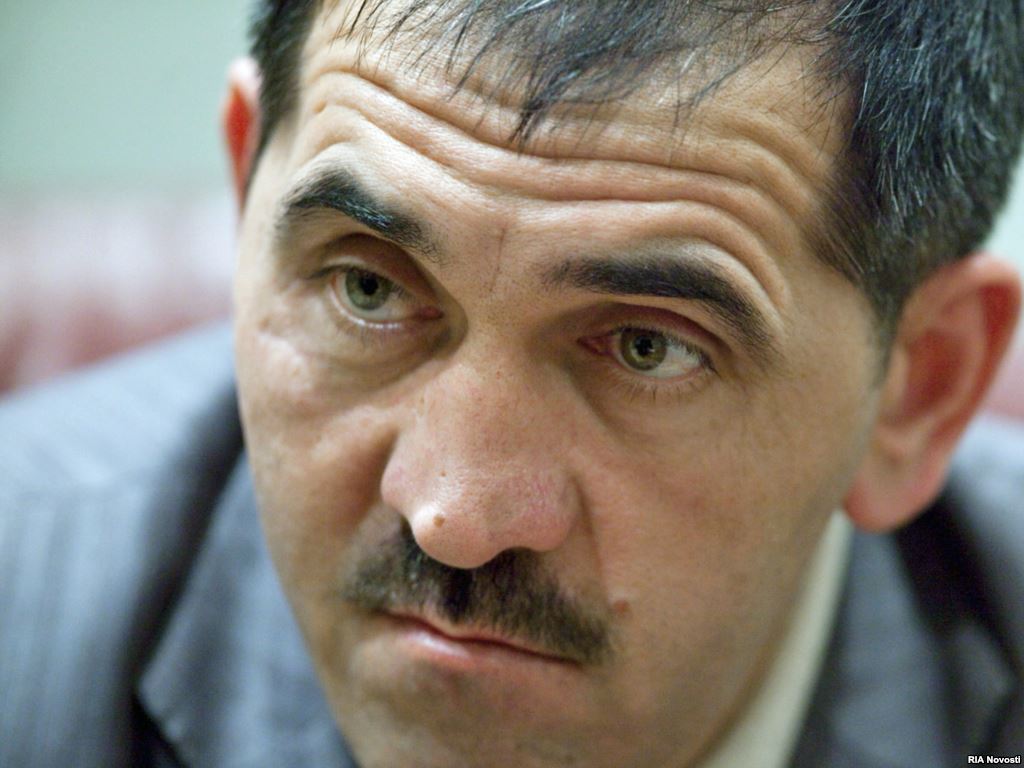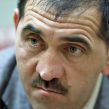
Is Kremlin Moving to Replace Ingush Leader?
Publication: Eurasia Daily Monitor Volume: 10 Issue: 64
By:

President Vladimir Putin recently signed into law legislation that allows Russian regions to choose their form of election for governor. They can now do it either through popular elections or through votes in their parliaments (www.kremlin.ru/acts/17786). Thus the new law permits regions to reject popular elections. Many observers think that this latest piece of electoral legislation was specifically designed for implementation in the North Caucasus (https://polit.ru/news/2013/04/02/vybory/). The Kremlin does not want any surprises in this part of the country and wants to install loyalists through the regional parliaments, whose deputies are also selected according to their loyalty to Moscow. This was an expected decision, even though there was little for the Kremlin to fear anyway. Many people in the North Caucasus still look to Moscow for solutions, and civil opposition is fairly weak. So there will be no surprises in the elections coming up in the fall of 2013. Everything will be under the full control of the Russian president’s administration.
The head of Ingushetia, Yunus-Bek Yevkurov, decided not to take any risks and will be elected by the republic’s parliament, whose members he selected himself. The parliament of Ingushetia, which has the official title of the People’s Assembly, consists of 27 members and is headed by Mukharbek Didigov (www.parlamentri.ru/chairman/). In the past, Didigov served as the prime minister in Ingushetia’s government under President Ruslan Aushev. Didigov became best known in 1997–2000, when he served as the head of the administration of Moscow’s envoy to the Chechen republic. Didigov became speaker of Ingushetia’s parliament in 2011 and is considered to be Moscow’s man. So Didigov is likely to be in the know about Moscow’s plans for the next governor in Ingushetia. Despite the fact that Yevkurov handpicked the 27 deputies of the regional parliament, it does not mean the deputies are fully loyal to him: Moscow’s opinion will still have greater sway.
Meanwhile, Russia’s First TV Channel aired a program implicating the head of Ingushetia’s government, Musa Chiliev, for involvement in crimes. This was a bad omen for the current Ingush authorities and a sign that Moscow may no longer view Yevkurov as a viable candidate for the republican leadership. On March 31, during evening TV prime time, a program was unexpectedly aired about “repentant” Ingush militant Ibragim Torshkhoev. The rebel picturesquely depicted the life of the militants in the mountains who engage in racketeering and robberies. Torshkhoev asserted he was trained to carry out a suicide attack. The most interesting part of his speech came when he alleged that some politicians in Ingushetia provided payoffs to the rebels to ensure their own personal security (https://tvrain.ru/articles/boeviki_kak_instrument_politicheskoj_borby_prezidenta_ingushetii_pytajutsja_podstavit_pered_vyborami-340152/). Pretending not to know who he was talking about, the “repentant” militant stated that a certain Ingush politician with the name Chiliev had made $1 million in payoffs to the rebels monthly.
This story appears to be quite murky. First, the rebel who surrendered to the authorities was wanted for the terror attack at Moscow’s Domodedovo airport on January 28, 2011. Second, it was strange that such a low-ranking member of the insurgency as Torshkhoev could have been present at the talks between the head of the Caucasus Emirate Doku Umarov and Emir Supyan (a.k.a. Supyan Abdullaev), who was considered to be Umarov’s successor and was killed on March 28, 2011. Torshkhoev’s insistence that he participated in meetings of such high profile figures in the insurgency is highly dubious. Third, being an ethnic Ingush, Torshkhoev could not have been so ignorant about a “certain politician Chiliev.” Moreover, the last name Chiliev is not a very common surname in Ingushetia and it was easy to see the connection to the head of Ingushetia’s government, Musa Chiliev. Finally, the First TV Channel in Russia never broadcasts anything that could evoke the Kremlin’s displeasure. Thus a range of experts on the North Caucasus agree that the TV program was targeted not so much against Chiliev, who was virtually unknown to the Russians prior to the militant’s revelations, as against Yunus-Bek Yevkurov (www.kavkaz-uzel.ru/articles/222309/).
Still, not all experts are certain that this program was a provocation: indeed, some think that there might be some truth in it. For example, the deputy director of the non-governmental organization Agency for Socio-Political Initiatives, Iles Tatiev, who works on North Caucasus Federal District projects, believes that some Ingush officials may have been giving payoffs to the rebels (https://izvestia.ru/news/547826). Also, Ekho Moskvy Radio commentator Yulia Latynina has frequently reported about payoffs that Ingush officials made to the rebels (https://newsland.com/news/detail/id/752419/).
Chechen authorities who have bad relations with Yevkurov took advantage of this opportunity to attack him. Shamsudin Saraliev, a Russian State Duma deputy from Chechnya, sent a request to the Prosecutor General’s Office asking investigators to check out Torshkhoev’s statements about Chiliev providing financial support to the insurgency (https://izvestia.ru/news/547826#comments). Ingushetia’s deputies and authorities also sent requests to the Prosecutor General’s Office, but of an entirely different nature: they asked the investigators to find out who was behind the attempt to undermine the republic’s reputation at the federal level (https://magas.su/tera/belan-khamchiev-vazhno-chtoby-narod-znal-istinu-potomu-chto-rech-idet-reputatsii-vsei-respublik).
Yevkurov is likely the first candidate for replacement in the upcoming electoral season. His former spokesperson’s assertion that rebel activity in Ingushetia has decreased during Yevkurov’s governorship is ludicrous (www.regnum.ru/news/kavkaz/ingush/1643582.html). Mr. Yevkurov has as much to do with lowering the levels of violence in Ingushetia as Putin’s government has to do with the great achievement of Russian mathematician Grigory Perelman, who proved Poincare’s hypothesis. Everything that happened to the rebels in Ingushetia was dealt with by the federal authorities; the regional authorities had nothing to do with it. Otherwise, Ingushetia’s authorities would have to take responsibility for all the killings of young people that have taken place in the republic over the past few years, all the kidnappings of insurgent sympathizers, explosions and terror attacks (https://www.kavkaz-uzel.ru/articles/122475).
Thus, along with the tense situation across the whole North Caucasus region, we will also see the rise of political tensions linked to the elections for governors in this region. As those elections approach, the situation in some regions could become especially critical. Indeed, the Kremlin seems to be in a hurry to appoint its men before the Sochi Olympics, because it needs at least to have an air of superficial peacefulness in the North Caucasus before the games. However, the situation could develop contrary to Moscow’s expectations and end up creating more uncertainty in places like Ingushetia than stabilizing the situation.




